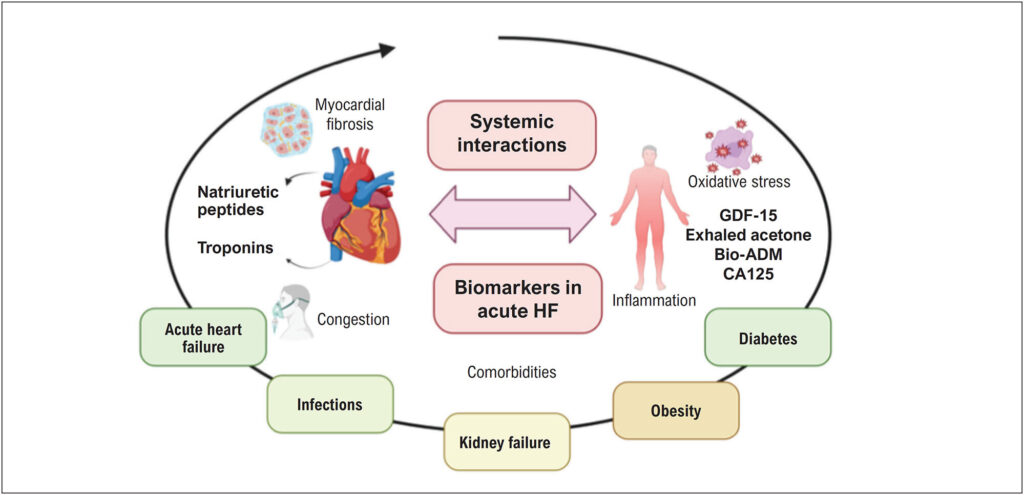ABC Heart Fail Cardiomyop 2023; 3(2): e20230072
How Can Biomarkers Be Useful in the Management of Acute Heart Failure?
Introduction
Heart failure (HF) can be a serious disease if not treated properly. One of the markers of severity is precisely hospitalization due to HF, often called acute HF or acutely decompensated (ADHF). ADHF involves patients with new HF or an exacerbation of chronic HF. The most common symptoms and signs in ADHF are dyspnea and edema of the lower limbs. Dyspnea, when it occurs in isolation, with no specific signs of HF, can hinder the diagnosis. In this context, HF guidelines recommend the measurement of biomarkers when there is doubt in the diagnosis of HF. Moreover, the measurement of biomarkers is recommended to improve prognostic accuracy.
In this article, we highlight how to use already established cardiac biomarkers, such as natriuretic peptides (NP) and high sensitivity cardiac troponins (HS-cTn) T and I, in the management of ADHF, and point out possible future systemic biomarkers, which may be useful in this scenario.
[…]
Keywords: Biomarkers; Diagnosis; Heart Failure; Prognosis
956


